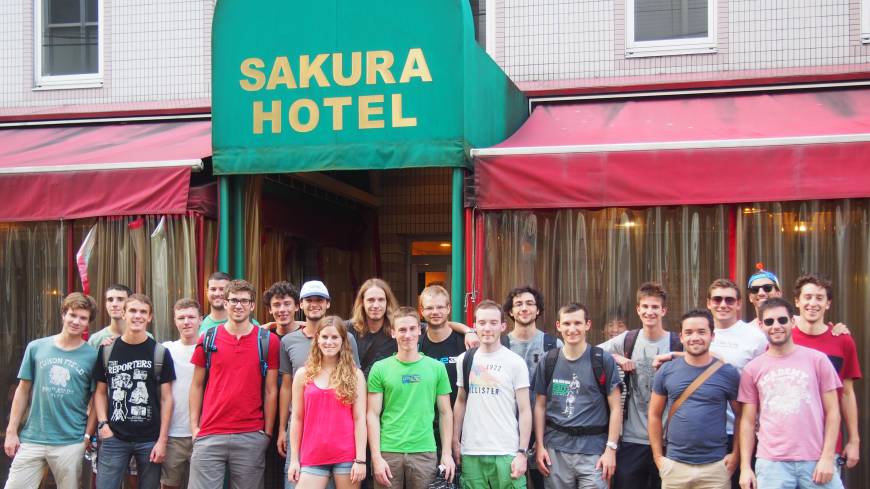Expats are constantly finding the best country where they can perfectly adjust in all aspects of everyday living such as food, language, culture and climate. For avid readers of ours who do not have an idea of what an expat is, an expat is classified as an individual who resides permanently or for just a short period of time with an immigrant status in a certain location like Japan.
Likewise, if you are an expatriate, this could have another connotation. This may mean an act of exile, de-naturalization and the renunciation of allegiance. Whatever category that a given expat belongs to is not really a big deal for as long as he or she can easily adopt to the varying changes of a particular territory. Expats in Japan must have a brief overview of how they must live in Japan for several years or shorter. Read full context below.
Japan: Pinakamagandang Destination Para sa Mga Expats
Bilang isang expats’ destination, ang bansang Japan ay magbibigay ng kakaibang karanasan sa pang-araw-araw na buhay. Sa kabuuan, mayroong dalawang milyong expats dito (may be more). Pitumpu’t limang porsiyento rito ay mula sa mga karatig bansa. Tulad ng ibang bansa, ito ay may kakaibang kultura na lubusang di maunawaan ng mga kanluraning bansa. Ngunit ang mga Hapones ay nagnanais na matutuhan ang mga pag-uugali ng mga taga kanluran. Kung ating pag-uusapan ang mga wika, mayroong mga expats na mahirap maunawaan ang wikang Hapon.
Cost of Living
For those expats who want to stay in Japan, you must be aware of the fact that both Osaka and Tokyo have high costs of living. This was strongly supported by the Mercer Cost of Living Survey in 2012. Consequently, it was significantly revealed that Osaka and Tokyo have been designated as “The Most Expensive Cities in Japan.” Hence, expats need a specific budget to adapt with the Japanese way of living specially in these cities. This corresponds to several Western luxuries. In cases where they want to make their expenses a bit lower, they must live outside the main cities of Japan.
Furthermore, housing is the most expensive necessity of everyone. These are mostly comprised of apartments. Along this line, utilities are too pricey as well. On the contrary, food commodities are more affordable as compared to other countries the world over.
Language
Japan has only one distinct language. But in some parts of Tokyo, a large population speaks the English language.
Climate
Ang Japan ay may apat na panahon. Ito ay nahahati sa dalawang kategorya: hot summers and cold winters.
Career Opportunities
Cultural and social behaviors are ingrained in the overall make up of Japan which have a tremendous impact on their ever-evolving job market. There are two kinds of job that are readily available exclusively for expats in Japan. These are the following: unskilled low paid work and skilled work respectively. English speaking expats are in demand as well as teachers who are excellently qualified to teach English.
To find the best jobs in Japan, these are mainly dependent on two factors: the marketable skills and personal connections. This means that a large number of expatriates get their ideal jobs through the process of recommendations from so-called closed contracts. Accordingly, look for the Daijob website which critically searches for qualified expats.
Essential Reminders for Expats in Japan
Below are some of important reminders for expatriates who want to live in Japan:
- Formal contracts like rental agreements are usually made legal and binding by an Inkan and not merely of a signature. An inkan is a genuine seal which bears the owner’s last name. You can get these authenticated documents from agents and stationary stores.
- Health insurance is not too easy to avail after you have registered for it. Just the same, you can get a private insurance instead.
- Expats who want to import some pets need to notify the Japanese Animal Quarantine Service at least 40 days before their scheduled arrival.
- Japanese citizens are prohibited to sponsor or hire foreign maids. On the other hand, expats who are holding senior positions are permitted to such hiring.
Ang mga tinaguriang expats ng Japan ay marami pang dapat matutunan ukol sa bansang kanilang napili. Masusi man ang kanilang pag-aaral, ito ay mangangailangan pa rin ng gradual social adjustments upang makapamuhay ng walang balakid at kaaya-aya sa malapit na hinaharap.
Image credit: www.japantimes.co.jp

























